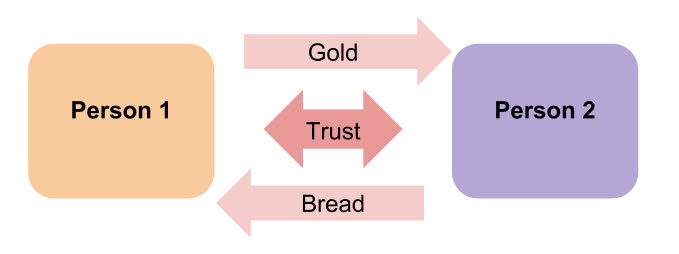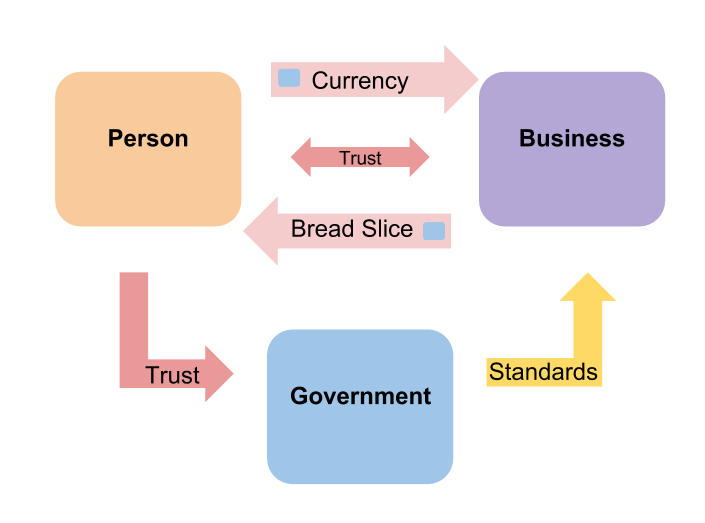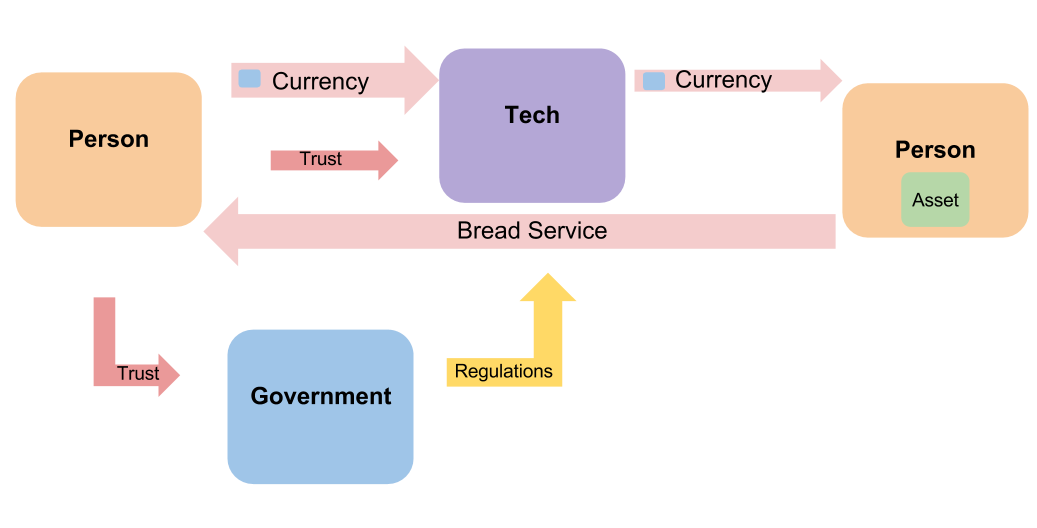The other day I listened to the Podcast Planet Money. It is one of my favorite and they cover economic topics in everyday life. The show I listened to was about Porcupine Freedom Festival or PorcFest. The festival is in New Hampshire and attracts people with libertarian philosophy. The show talked a lot about trust and how we trust the government for services and products and the pros and cons to this.
There are pieces of libertarian philosophy that interest me. I agree with decriminalizing drugs and possibly legalizing drugs. I also admire that libertarian philosophy is absolute. They define the role of government and propose changes that fit with that role. Democrats and Republicans typically do not define the function of government instead they talk about a service or tax change. Now back to PorcFest.
At PorcFest many of the products were not inspected by the government. The food wasn’t examined by a food inspector and agricultural products not seen by the USDA. At the festival people also refrained from using money and the “treasury note” (US Dollar). Instead, they used gold, silver, and copper to trade for products. What if someone cheated with fake gold. What would happen if someone got sick? Attendees argue that if someone got sick or cheated that people would stop buying or selling and the market would correct the damage to the individual. In this system, people trust and interact directly with someone else. There are two parties in this system. I call this trust 1.0
Trust 1.0

This system has been around for thousands of years and is built around that two parties will continue to interact with people. In small villages or a camp in New Hampshire, this works well. What happens when a society becomes too big? Maybe you only buy bread from someone once, so the cost of making people sick decreases and the baker cuts corners. How can you trust people now when the risk of one party of cheating is decreased. The temptation to sell old bread or use diluted gold increases.
Trust 2.0

There have been social limits proposed for humans. Dunbar’s number is a proposed limit of connection humans can have based on our limits of our brain. This proposes that societies can be about 200 individuals before a structure and hierarchy are needed. A village chief becomes a king and enforcers are needed. This new structure created solutions to prevent people from cheating. Money, scales, standards were invented. Coins were invented around 700 years before the current era. What is the advantage of the coin?
At PorcFest where money wasn’t typically used, the value of the piece of gold you are trading is uncertain. Gold prices fluctuate all the time. Also, the amount of gold people were trading was not standard. A gold shaving would be about $2 but how did you know exactly how much it was without weighing it and checking the gold prices. This all takes time and reduces the efficiency of the market. It is great and fun to do while camping in the woods to show your values, but imagine doing this while buying a lot of one thing. It would take a lot of time. One egg omelet easy, but with 1,000 egg omelets, it becomes easier to use standard currency. So what is this trust 3.0?
Trust 3.0
Trust 1.o is two people trading. Trust 2.o is the government creating standards which people use. Trust 3.o is companies and the gig economy. When I was in Hong Kong I used Airbnb and was tricked. I booked a place. When I arrived at the building I found that the apartment number didn’t exist, the person didn’t respond, and the phone number didn’t work. Airbnb later refunded my money. But I spend 8+ hours to correcting the problem. When I booked the place I didn’t think about who I was booking with instead I thought how much I trust Airbnb. In this new system, we don’t think about the trust from the people who we get the product or service.

In trust 3.0 we trust the companies that set us up with the service more than the person providing it. Do you know the name of the last person you got a ride with from Uber or Lyft? This trust can make experiences like my Airbnb happen and allow for cheaper housing in desired locations. When I use a ride sharing app it amazes me I don’t have to pay the person in cash right there. It is magically handled by the company. This few minutes of paying and getting change back are spent instead serving the next person. The receiver trusts the Tech company to pay the person providing the service. And the person doing the service trusts the Tech company to get paid.
One tool Tech companies have used to get over this Trust issue is ratings and reviews. These tools allow the market to correct damages to individuals similar to the Trust 1.0 system.
Next System
From two people to large tech companies all require trust to work. When systems become more complex we need more tools. If the Dunbar’s Number is correct then we have used tools for almost every part of our life including how to organize. Before it was the tool of leadership, then coins, then standards, and now reviews. The next system, Trust 4.0 will require more tools.
Work Cited:
Dunbar’s Number. Accessed July 9. https://en.wikipedia.org/wiki/Dunbar%27s_number
History of Coins. Accessed July 9. https://en.wikipedia.org/wiki/History_of_coins